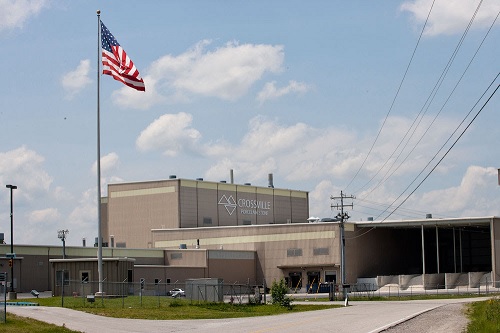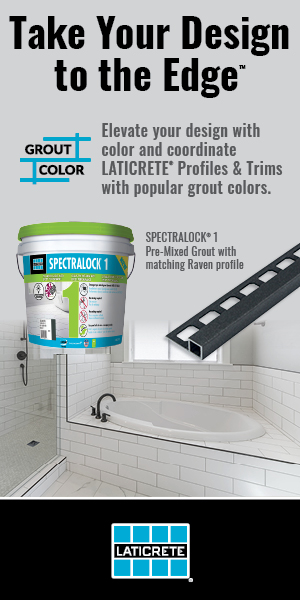First U.S. Tile Manufacturer to Set Specific Short-Term Carbon Reduction Objectives
Crossville, Tennessee – Crossville Inc. announces aggressive carbon reduction goals affecting its tiles’ global warming potential with a goal of achieving a 30% reduction in manufacturing embodied carbon by 2030. The company’s short-term goal is equally aggressive as it seeks to achieve an additional 10% reduction by 2024 as compared to its 2019 measurements.
From its founding, Crossville has recognized that a product that comes from the earth should have minimal impact on the earth. In 2014, Crossville completed its first energy usage assessment, which led the company to develop its Environmental Product Declarations. Five years later, Crossville achieved a 10% reduction in the tiles’ embodied carbon, beginning the path of carbon reduction in its facilities and operations. Based on that reduction, Crossville has developed new aggressive goals that embody changes the company will make to its processes to affect the tiles’ global warming potential. The company announced short-term goals of achieving an additional 10% reduction in the tiles’ global warming potential by 2024 and a 30% reduction from its 2014 baseline by 2030.
“We are exploring all the ways internally that we can drive energy reduction strategies with changes to product and process, including investigating all new evolving technologies that improve energy efficiency while maintaining a commitment not to compromise quality,” said Lindsey Waldrep, Crossville’s Vice President of Marketing.
Reducing the Carbon Footprint
The company’s ongoing commitment is to alter and reduce manufacturing’s carbon impact through changes to product and manufacturing processes. However, Crossville products are still influenced by the energy needed to produce them. For this reason, the company can further reduce its tiles’ carbon footprint by purchasing verified emissions reductions, or carbon offsets, whereby embodied carbon is offset by contributions to projects which help make the world better, greener, and more sustainable.
“As we learn and grow, our sights are set on reducing the carbon footprint of all our manufactured products, and as we make further changes to our manufacturing process, the less we will need to rely on carbon offsets to do the good we know is possible,” explained Waldrep.
It Doesn’t End When the Product Leaves the Plants
Although the company is purchasing credits to offset the embodied carbon associated with manufacturing, Crossville goes further than many other manufacturers who practice “cradle to site” or “cradle to gate” carbon reduction. Crossville is purchasing credits that offset the embodied carbon of its tiles through the entire product lifecycle. By taking into account the carbon footprint of tiles from inception through demolition and destruction, the company’s “cradle to grave” carbon credits do more for the environment.
Crossville’s ongoing efforts in sustainability support the belief that the built environment should foster well-being in our lives at home, at work, and beyond. The company’s plants were designed and remodeled to reduce the impact that manufacturing has on natural resources. The product development teams strive to be mindful of natural resources. Crossville continues working diligently with its supply chain to help make improvements beyond the walls of its factories and service locations.







